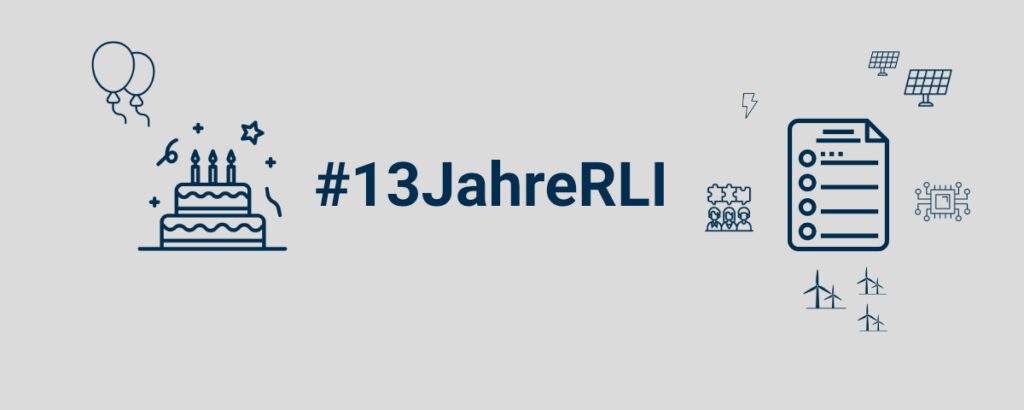13th birthday of the RLI – 13 Challenges of the energy transition
The RLI celebrates its birthday today: 13 years of successful research on renewable energies. Nevertheless, there is still a lot to do. The following list shows 13 challenges of the energy transition – and how RLI scientists are working to overcome them until our goal of 100 percent renewable energy is reached.
1. Enable more citizen participation in the energy transition.
In the EmPowerPlan project, RLI scientists are developing and testing tools for citizen participation and collaborative processes.
2. Develop regional hydrogen economies.
In the HyNATuRe project, RLI is preparing a feasibility study for the development of a regional hydrogen economy in the Neckar-Alb region.
3. Empowering communities abroad to be self-sufficient in renewable energy.
CP-Nigeria aims to enable various communities in rural Nigeria to independently plan and implement projects for the supply of decentralized renewable energies.
4. Utilize more land for energy from wind and solar.
The “PV and Wind Area Calculator” interactively shows areas in Germany that are suitable as wind potential areas or for the installation of photovoltaic systems.
5. Establish international research networks.
In the HyRECA project, RLI is establishing an international research network to investigate the potential of green hydrogen from a technical, ecological and socio-economic perspective in Central Asia.
6. Promote H2 technologies in the mobility and heating sectors.
At HyExpert Chemnitz, RLI is working on a hydrogen strategy for the Chemnitz model region, with a focus on the mobility and heating sectors.
7. Overcoming obstacles in the use of integrated water, energy, food and environmental system models.
In this research project, we develop software tools that help to better plan sustainable infrastructure solutions.
8. Decarbonizing bus transport.
E-bus 2030+ is about developing software to fully decarbonize Berlin’s public bus transport by 2030 and beyond.
9. More cooperation between city and state on climate protection.
In Urban-Rural Energy, RLI helps rural and urban municipalities to optimally link their different frameworks and thus realize the energy transition locally.
10. Establish hydrogen partnerships with and between non-EU countries.
To achieve this goal, RLI scientists are analyzing the opportunities and risks of possible hydrogen partnerships between the regions of North Africa, West Africa, Central Asia and Germany in order to derive recommendations for action.
11. Finding alternatives to the operation of diesel trains.
Here, the RLI is investigating the possible switch to electrically powered battery trains as well as hydrogen trains and their requirements for the infrastructure.
12. Improve sector coupling.
In the Sedos project, RLI is researching how the interconnection of different sectors from the energy industry and industry can be better mapped and optimized.
13. Support decision-makers in their planning for a more sustainable and climate-friendly future.
In this project in the Aral Sea region, RLI hosts workshops for political, public and private decision-makers to teach them how to use specific tools to plan more sustainably and with less impact on the climate.
